In recent years, Red light Weight Loss therapy has become a go-to option for people who want to shed extra pounds without surgery or strict eating plans. This gentle treatment has made a name for itself in the weight loss world. The therapy aids in fat loss by accelerating bodily functions and detoxification, thereby enhancing general health. As more people learn about it, they have questions. How does it work? Does it help? How much does it cost? This piece provides insights into red lightweight loss therapy, detailing its function, benefits, and potential financial investment.
What is Red Light Weight Loss Therapy?
Red lightweight loss therapy, otherwise referred to as low-level laser therapy or photobiomodulation, is a process that involves the use of low-level red light wavelengths in order to stimulate the fat cells and promote weight loss. In this therapy, special wavelengths of red light, usually between 630-670 nanometers, are used.
Red light easily passes through the skin layers until it gets to the fat tissue (adipose), exciting cells that will release the triglycerides stored within. Systemic triglycerides then break down into free fatty acids and glycerol and are released into the circulatory system. After entering the circulatory system, these fatty acids can go wherever necessary throughout the body. In other words, Red Light Therapy helps shrink "fat" cells, making it easier for the body to reduce fat deposits over time.

What is so special about red light-weight therapy for weight loss?
Non-Invasive Nature
A key factor driving the popularity of Red Light Weight Loss Therapy is its non-invasive nature. Besides being essentially nonsurgical, this therapy doesn't require any incisions, just like liposuction; no anesthesia is required, and definitely no recovery time spent in bed.
Safety
Safety is another advantage, with minimal side effects, making it a generally secure option. In contrast to treatments using chemicals or drugs, red light therapy's use of natural light wavelengths lowers the risk of negative reactions.
Metabolic Boost
The other reason that Red Light Therapy works so well for weight loss is that it raises metabolism levels. According to experts, the treatment will increase the cells' mitochondria function, hence boosting energy production. This boosted metabolism can enhance fat burning, thereby simplifying the weight loss process.
Cellular Health
Red light acts on fat cells but also enhances the general health of cells. Improved cellular health increases cell energy output, aiding in weight loss and benefiting the skin, muscles, and other body tissues. This makes it a holistic approach to healthy therapy approaches. Research indicates that low-level laser therapy (LLLT) can reduce fat in specific areas like the belly, hips, and thighs. A study published in Lasers in Surgery and Medicine found that individuals who underwent red light therapy had significantly smaller waist sizes compared to those who did not.
Additional Benefits
There are more benefits of red light therapy than just weight loss. It can complement skin tone and texture with the production of collagen that reduces cellulite and wrinkles. Moreover, its anti-inflammatory properties make it beneficial for individuals with chronic pain or inflammatory conditions.
How to Use Red Light Weight Loss Therapy?
Frequency and Duration
For the best results with this red light weight loss therapy, conduct regular sessions. Typically, this is attending sessions 2-3 times a week, and each session may last from 15-30 minutes. However, the recommended frequency and length of treatments can vary based on personal objectives, body type, and the equipment or facility chosen. It is advisable to seek guidance from a healthcare professional or certified therapist when establishing a personalized treatment regimen.
Combination with Other Practices
For Red Light Weight Loss Therapy, the best results are always those coupled with other healthy lifestyle practices. Pairing a balanced diet with consistent exercise can amplify the impact of this therapy on fat reduction. Strength training and cardiovascular workouts will further boost metabolism and improve muscle definition, while a nutritious diet prevents new fat deposits.

Professional vs. At-Home Red Light Therapy
|
Specifications |
Professional Treatments |
Home-Use Devices |
|
Power Output |
Higher; potentially faster results |
Lower; may require more sessions |
|
Supervision |
Supervised by trained professionals |
Self-administered |
|
Treatment Plan |
Personalized and tailored to individual needs |
Standardized; user controls the treatment plan |
|
Convenience |
Requires appointments and travel to clinics |
Can be done at home, anytime |
|
Cost Per Session |
Higher fees ($50-$200 per session) |
Lower long-term cost; initial investment ($100-$2,000) |
|
Flexibility |
Fixed schedule and location |
Flexible; no need for appointments |
|
Safety |
Expert supervision ensures proper and safe use |
Requires careful adherence to instructions |
|
Overall Cost |
Higher, especially with multiple sessions |
Lower long-term cost after device purchase |
Monitoring Progress
Monitoring progress is an essential factor in the effectiveness of Red Light Weight Loss Therapy. It's recommended to take baseline metrics like weight and body dimensions, as well as photographs, before commencing therapy. All these metrics should, from time to time, be looked at to check if the therapy works or if the treatment plan needs adjustment. This process demands patience, as outcomes differ from individual to individual. Some people notice improvements within weeks; for others, it may take a little while longer.
Cost of Red Light Weight Loss Therapy
The cost of professional red lightweight loss sessions typically ranges from $50 to $200, but purchasing a package may reduce overall expenses. At-home devices range from $100 to $500 for handheld units and $500 to more than $2,000 for full-body panels. As red light therapy is generally classified as cosmetic, it's not commonly covered by health insurance; however, verifying with your insurance provider for any possible exceptions is advisable.
Conclusion
Red light weight loss therapy is a non-invasive and safe method for supporting weight loss and obtaining maximum health benefits. The therapy boosts metabolic rate, enhances cellular performance, and improves skin tone. Prices vary; of course, the more you make use of Red Light Therapy in conjunction with a healthy diet and exercise regimen, the better the results will be. If there's uncertainty about its suitability for your health status or weight loss objectives, seeking medical advice is recommended.
References
[1] Glass G. E. (2021). Photobiomodulation–The Clinical Applications of Low-Level Light Therapy. Aesthetic Surgery Journal, 41(6), 723–738. https://doi.org/10.1093/asj/sjab025
[2] Avci P, Nyame TT, Gupta GK, Sadasivam M, Hamblin MR. Low-level laser therapy for fat layer reduction: a comprehensive review. Lasers Surg Med. 2013 Aug;45(6):349-57. https://pubmed.ncbi.nlm.nih.gov/23749426/
[3] Croghan IT, Hurt RT, Schroeder DR, Fokken SC, Jensen MD, Clark MM, Ebbert JO. Low-level laser therapy for weight reduction: a randomized pilot study. Lasers Med Sci. 2020 Apr;35(3):663-675. https://pubmed.ncbi.nlm.nih.gov/31473867/



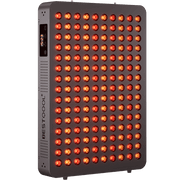









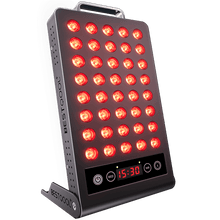
 Small
Small
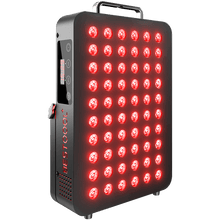
 Moderate
Moderate
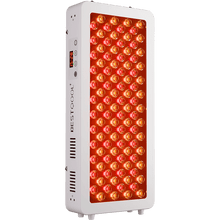
 Moderate
Moderate
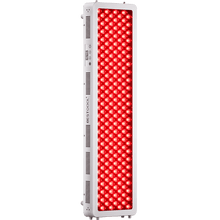
 Moderate
Moderate
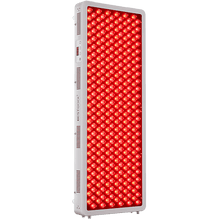
 Full
Full



